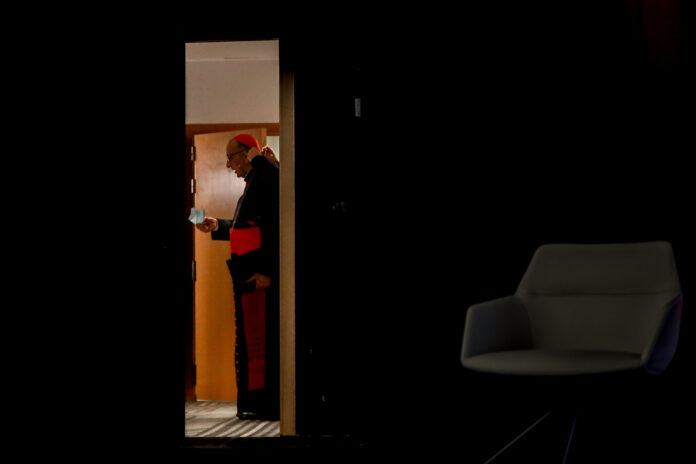A total of 58 Spanish bishops, the Pope’s apostolic nuncio in Spain, Bernardito Auza, and more than 600 members of the Church, including representatives of the dioceses, priests, men and women religious and laity, will meet this Saturday, June 11, at the final Assembly of the diocesan phase of the Synod of Bishops, in which the Spanish Episcopal Conference (CEE) presents a summary of the proposals of Spanish Catholics for the Synod convened by Pope Francis for October 2023.
With this meeting, which is being held at the Pablo VI Foundation in Madrid, the diocesan phase of the Synod, which began on October 17, 2022, comes to a close. During these seven months, the dioceses, movements, associations and individuals have carried out their proposals for the life of the Church. Specifically, it is estimated that more than 215,000 people have been involved, according to the EEC.
According to the final summaries of several dioceses, consulted by Europa Press, the reception of the LGTBI community, the female priesthood, optional celibacy and abuse are some of the issues on which Spanish Catholics ask the Church for more reflection.
Specifically, the Church of Barcelona raises in its document, among other issues, opening the possibility of optional celibacy, access to the priesthood for married men and advancing in the reflection on women’s access to the priesthood.
The Diocese of Girona also points out in its final synthesis that the contributions mention “repeatedly” the “limitations of women’s access to various trades and ministries, the non-optionality of celibacy in priests and the system of appointment of pastors” .
In the same sense, the final document of the Church of Huelva reflects “some opinions that want the Church to allow the ordination of married men.”
Likewise, the Church of Vitoria has also collected some contributions from the groups that have proposed “opening the option to the priestly ordination of women”.
In other dioceses, although the desire for women to have access to the presbyterate is not specifically stated, opinions favorable to giving them greater responsibilities within the Church do appear.
Among other issues, it also emerges in some dioceses, such as those of Madrid and Tarragona, the need to reflect on “the reception of divorced and LGTBI people” so that they can feel “fully integrated.”
Likewise, in most dioceses the concern about sexual abuse of minors within the Church and the need to address it with “courage” is reflected.
All these proposals have been collected by the EEC to make a summary that will be sent to the General Secretariat of the Synod, ahead of the XVI Ordinary General Assembly of the Synod of Bishops, to be held in October 2023 in the Vatican.
This Saturday’s session will begin at 11:00 am with welcome greetings from the Cardinal Archbishop of Madrid, Carlos Osoro; the President of the EEC and Cardinal Archbishop of Barcelona, Juan José Omella, and the Apostolic Nuncio in Spain, Bernardito Auza.
After the presentation of the synthesis, which will be carried out by members of the synodal team of the CEE, the participants will meet in groups to reflect on a personal and group level. The objective is to share their impressions and even add new contributions after listening to that final synthesis.
The meeting will conclude with the celebration of the Eucharist, presided over by Cardinal Juan José Omella, and with a final act of dispatch that will be carried out by the Secretary General of the CEE. As a symbol of “shipment” participants will be given a small sack of seeds, made by the Conceptionist Nuns of Osuna (Seville).
Throughout the day, the Blessed Sacrament will be exposed in the chapel of the Pablo VI Foundation, and people will be invited to go to the chapel in free time to “remember the importance of the Spirit in synodal discernment.”
Conforms to The Trust Project criteria








